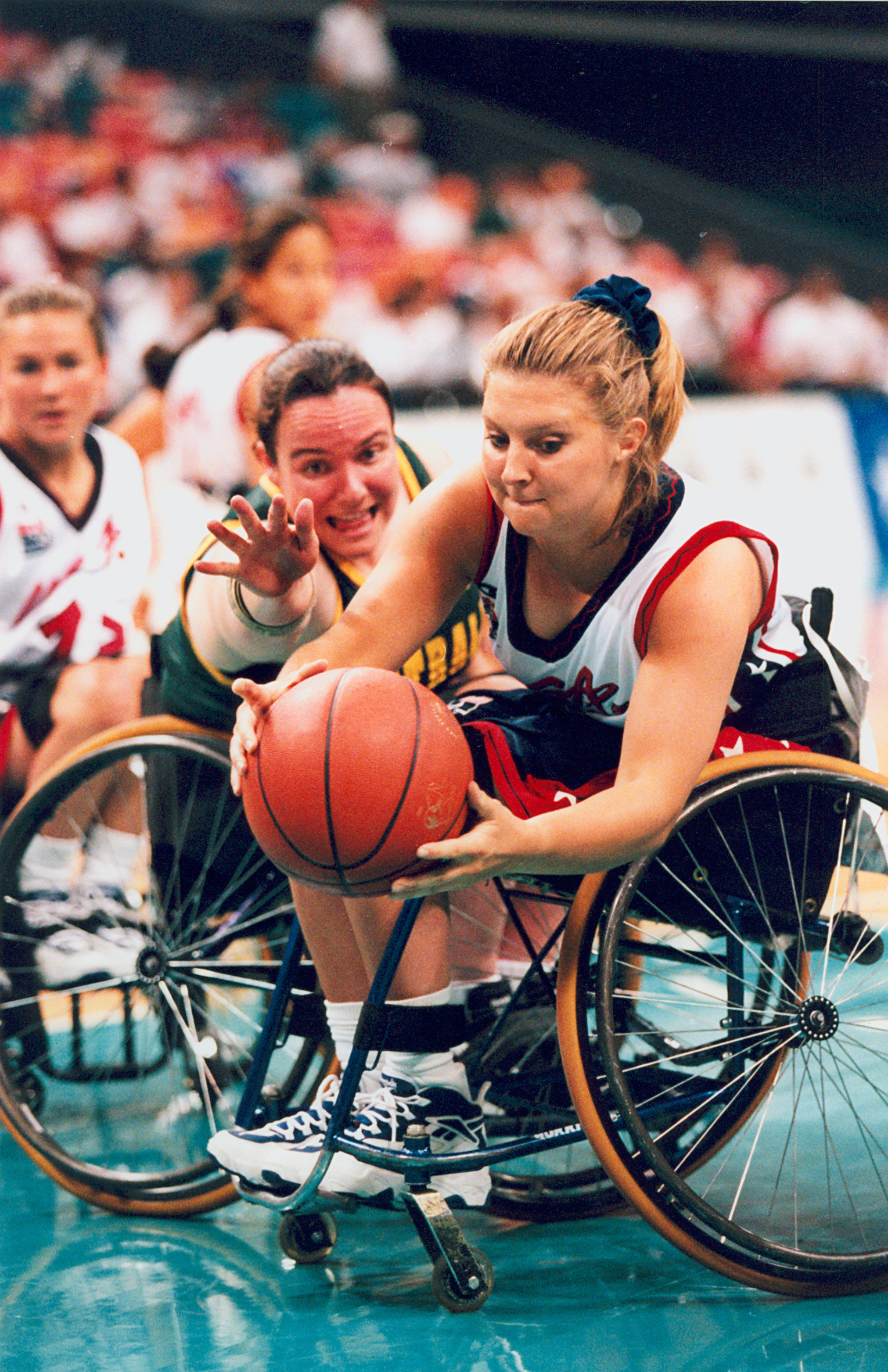|
Katie Hill (basketball)
Katie Hill (born 17 February 1984) is an Australian 3.0 point wheelchair basketball player. She participated in the 2008 Summer Paralympics in Beijing, where she won a bronze medal, and the 2012 Summer Paralympics in London, where she won a silver medal. She has over 100 international caps playing for Australia. Hill plays for the Sydney University Flames in the Australian Women's National Wheelchair Basketball League (WNWBL). As the Hills Hornets, her team won the league championship in 2007, 2008 and 2009. After changing their name to the Sydney University Flames, they again won the WNWBL championship in 2010. She was named 4 point Most Valuable Player (MVP) and a member of the All Star Five in 2007. In 2009, she scored 21 points in the Hornets' 66–49 final win against the Perth Western Stars, and was named MVP of the finals series. Hill made her national team debut in 2005 in Malaysia at the World Junior Wheelchair Basketball Championships, and has played for the Austr ... [...More Info...] [...Related Items...] OR: [Wikipedia] [Google] [Baidu] |
Wheelchair Basketball
Wheelchair basketball is basketball played by people with varying physical disabilities that disqualify them from playing a non-disabled sport. These include spina bifida, birth defects, cerebral palsy, paralysis due to accident, amputations (of the legs, or other parts), and many other disabilities. The International Wheelchair Basketball Federation (IWBF) is the governing body for this sport. It is recognized by the International Paralympic Committee (IPC) as the sole competent authority in wheelchair basketball worldwide. FIBA has recognized IWBF under Article 53 of its General Statutes. The IWBF has 95 National Organizations for Wheelchair Basketball (NOWBs) participating in wheelchair basketball throughout the world, with this number increasing each year. It is estimated that more than 100,000 people play wheelchair basketball from recreation to club play and as elite national team members. Wheelchair basketball is included in the Paralympic Games. The Wheelchair Basketball ... [...More Info...] [...Related Items...] OR: [Wikipedia] [Google] [Baidu] |
Spina Bifida
Spina bifida (Latin for 'split spine'; SB) is a birth defect in which there is incomplete closing of the spine and the membranes around the spinal cord during early development in pregnancy. There are three main types: spina bifida occulta, meningocele and myelomeningocele. Meningocele and myelomeningocele may be grouped as spina bifida cystica. The most common location is the lower back, but in rare cases it may be in the middle back or neck. Occulta has no or only mild signs, which may include a hairy patch, dimple, dark spot or swelling on the back at the site of the gap in the spine. Meningocele typically causes mild problems, with a sac of fluid present at the gap in the spine. Myelomeningocele, also known as open spina bifida, is the most severe form. Problems associated with this form include poor ability to walk, impaired bladder or bowel control, accumulation of fluid in the brain (hydrocephalus), a tethered spinal cord and latex allergy. Learning problems are rela ... [...More Info...] [...Related Items...] OR: [Wikipedia] [Google] [Baidu] |
040912 - Katie Hill - 3b - 2012 Summer Paralympics (01)
4 (four) is a number, numeral and digit. It is the natural number following 3 and preceding 5. It is the smallest semiprime and composite number, and is considered unlucky in many East Asian cultures. In mathematics Four is the smallest composite number, its proper divisors being and . Four is the sum and product of two with itself: 2 + 2 = 4 = 2 x 2, the only number b such that a + a = b = a x a, which also makes four the smallest squared prime number p^. In Knuth's up-arrow notation, , and so forth, for any number of up arrows. By consequence, four is the only square one more than a prime number, specifically three. The sum of the first four prime numbers two + three + five + seven is the only sum of four consecutive prime numbers that yields an odd prime number, seventeen, which is the fourth super-prime. Four lies between the first proper pair of twin primes, three and five, which are the first two Fermat primes, like seventeen, which is the third. On the other hand, t ... [...More Info...] [...Related Items...] OR: [Wikipedia] [Google] [Baidu] |


